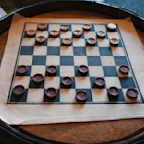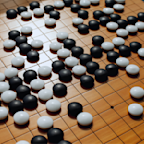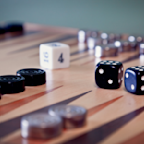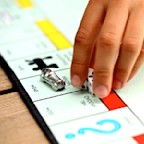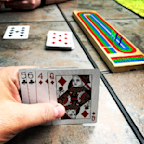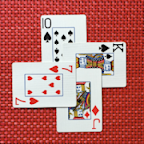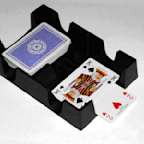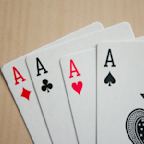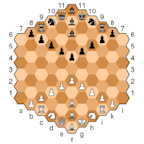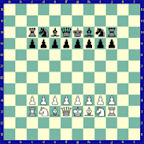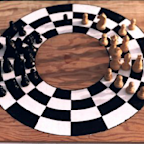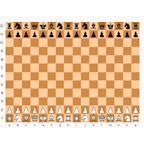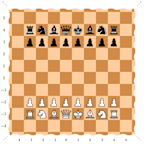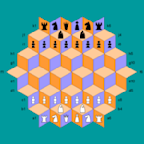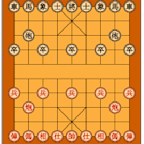Search results
Results From The WOW.Com Content Network
The Lucena position is one of the most famous and important positions in chess endgame theory, where one side has a rook and a pawn and the defender has a rook. Karsten Müller said that it may be the most important position in endgame theory. [1] It is fundamental in the rook and pawn versus rook endgame. If the side with the pawn can reach ...
The Saavedra position is one of the best-known chess endgame studies. It is named after the Spanish priest Fernando Saavedra (1849–1922), who lived in Glasgow during the late 19th century. Though not a strong player, he spotted a win involving a dramatic underpromotion in a position previously thought to have been a draw .
In chess, several checkmate patterns occur frequently enough to have acquired specific names in chess commentary. By definition, a checkmate pattern is a recognizable/particular/studied arrangements of pieces that delivers checkmate. [1] The diagrams that follow show these checkmates with White checkmating Black.
Three Fairy Chess pieces are used, the titular Duchess (princess), the Fortress (empress), and the Wizard, capable of teleporting friendly pieces. Forchess: A four-player variant using the standard board and two sets of standard pieces. Fortress chess: A four-player variant played in Russia in 18th and 19th centuries.
This article uses algebraic notation to describe chess moves. In chess, fool's mate is the checkmate delivered after the fewest possible moves from the game's starting position. [1] It arises from the following moves, or similar: 1. f3 e6.
Moves. d4, e3, Bd3, Nbd2, f4, Ngf3, c3. ECO. D00, A03, A45. Parent. Queen's Pawn Game. The Stonewall Attack is a chess opening characterized by White playing pawns to d4 and e3, bishop to d3, knight to d2, and then completing the Stonewall structure by playing pawns to c3 and f4.
Abhimanyu Mishra (born February 5, 2009) is an American chess grandmaster. A chess prodigy, he became the youngest player ever to qualify for the grandmaster title on June 30, 2021, at the age of 12 years, 4 months, and 25 days, beating Sergey Karjakin's record of 12 years and 7 months, which had stood since 2002. Career
Bird's Opening (or the Dutch Attack) is a chess opening characterised by the move: 1. f4. Named after 19th century English player Henry Bird, Bird's opening is a standard flank opening. White's strategic ideas involve control of the e5-square, offering good attacking chances at the expense of slightly weakening their own kingside.
The Monkey's Bum is a variation of the Modern Defense, a chess opening. Although it may also be loosely defined as any approach against the Modern Defense involving an early Bc4 and Qf3, threatening "Scholar's mate", it is strictly defined by the sequence of moves: 1. e4 g6 2. Bc4 Bg7 3. Qf3 e6 4. d4 Bxd4 5. Ne2 Bg7 6. Nbc3
Chess computers were first able to beat strong chess players in the late 1980s. Their most famous success was the victory of Deep Blue over then World Chess Champion Garry Kasparov in 1997, but there was some controversy over whether the match conditions favored the computer. In 2002–2003, three human–computer matches were drawn, but ...

